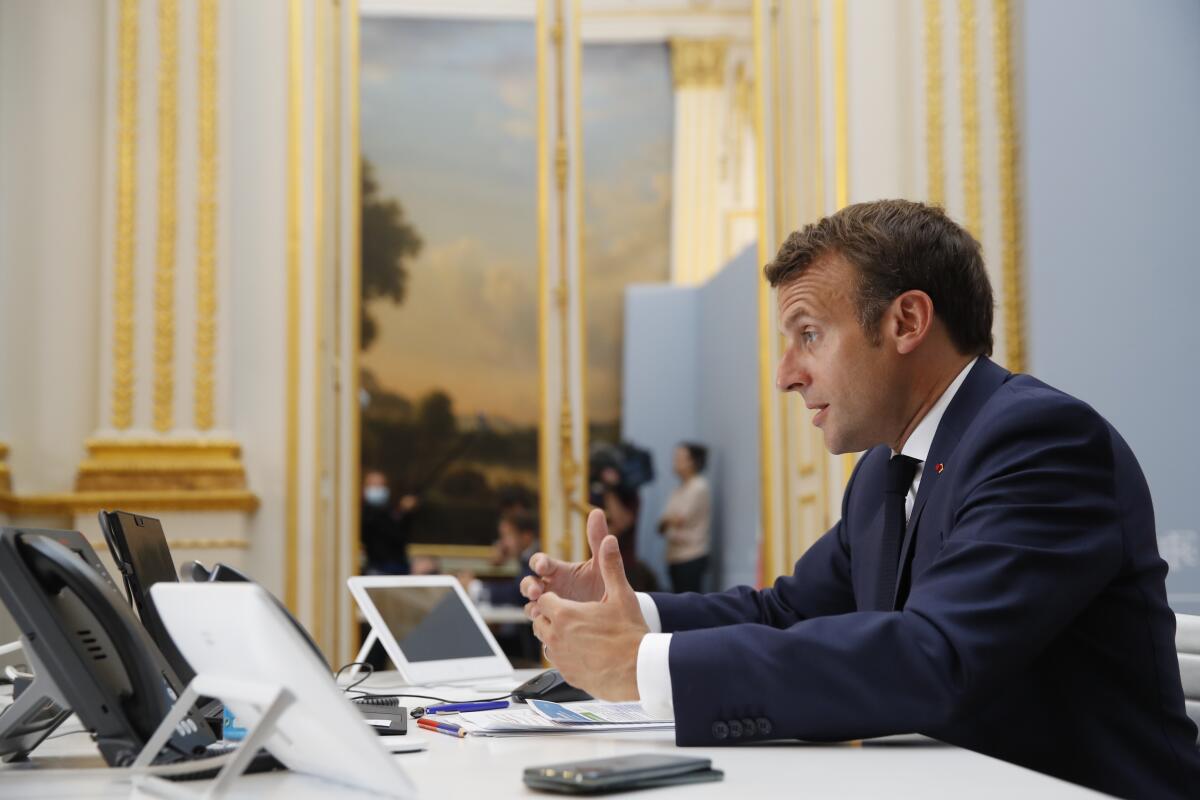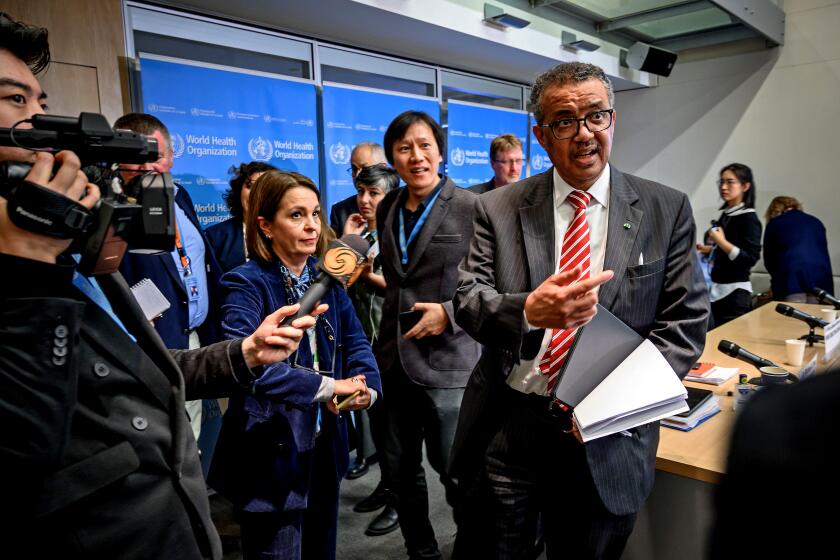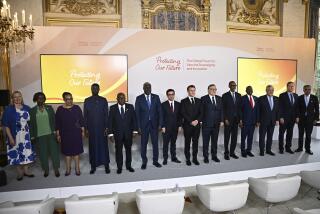$8-billion effort aims to speed development of coronavirus vaccines and treatments

- Share via
The World Health Organization joined with global leaders Friday to speed up the development and production of vaccines and therapeutics that can stamp out the coronavirus pandemic, and to insure that they are distributed quickly and equitably across the globe.
“Past experience has taught us that even when tools are available, they have not been available equally to all,” Tedros Adhanom Ghebreyesus, director-general of the World Health Organization, said during a virtual meeting to launch the international initiative. “We cannot allow that to happen.”
The new program, called Access to COVID-19 Tools Accelerator, or the ACT Accelerator, is a collaboration between the WHO and dozens of governments, nonprofit organizations and industry leaders.
Friday’s launch event was co-hosted by French President Emmanuel Macron, European Commission President Ursula von der Leyen and philanthropists Bill and Melinda Gates.
Leaders from South Africa, Rwanda, Germany, Great Britain, Spain, Italy, Malaysia, Saudi Arabia, Finland and Costa Rica joined the call to pledge their commitment to work with and support the ACT Accelerator.
Representatives from the United States and China were noticeably absent.
“We hope we can reconcile the initiative with China and the U.S.,” Macron said. “There should not be any divisions between countries. We need to join forces.”
Von der Leyen said a pledge drive to fund the ACT Accelerator will take place on May 4 with a goal of raising $8 billion to ramp up the development of diagnostics, therapeutics and treatments.
Creating a vaccine capable of preventing the coronavirus that causes COVID-19 will take many months — if not a year or more. These are the steps involved.
But she said the development of these technologies is just a first step. In order to be effective, these tools will need to be affordable, produced by the billions and rapidly distributed to all corners of the world.
“Beating coronavirus will require sustained access on many fronts,” she said. “We need a global response to a global pandemic.”
Already, $2 billion has been pledged to the ACT Accelerator, said Mohammed Al-Jadaan, Saudi Arabia’s minister of finance. That leaves a gap of about $6 billion.
The global initiative will also draw on the expertise and infrastructure already put in place by nonprofits that work across the globe, including Gavi, the Vaccine Alliance, the International Federation of Red Cross and Red Crescent Societies, and Unitaid.
The rise of nationalism and geopolitics is hampering the World Health Organization at a time when global leadership in public health is critical.
Leaders of the International Federation of Pharmaceutical Manufacturers, the International Generic and Biosimilar Medicines Assn., and the Developing Countries Vaccine Manufacturers Network also pledged their support.
“COVID-19 has impacted all lives and the global economy in ways never before experienced in common memory,” said Muhyiddin Yassin, prime minister of Malaysia. “The only way we can destroy this virus is through solidarity and cooperation.”








